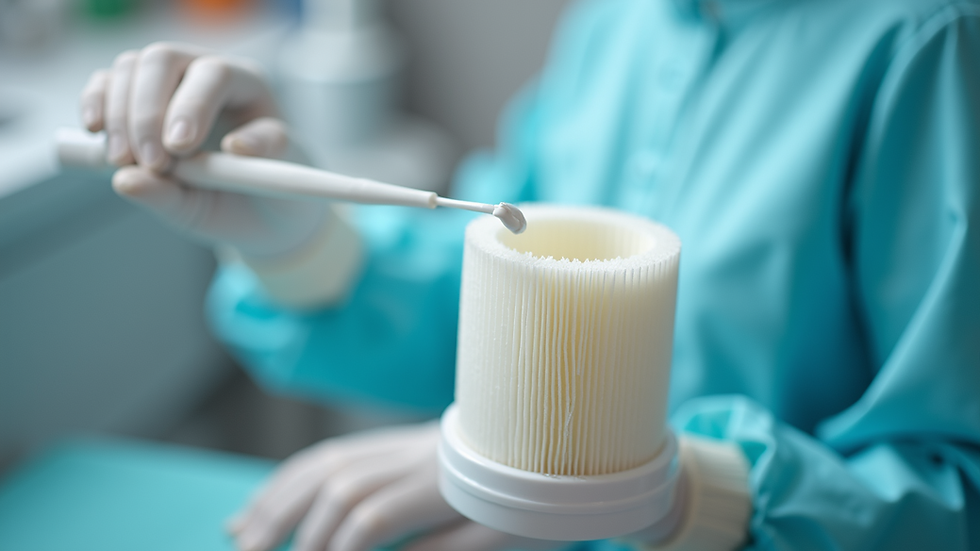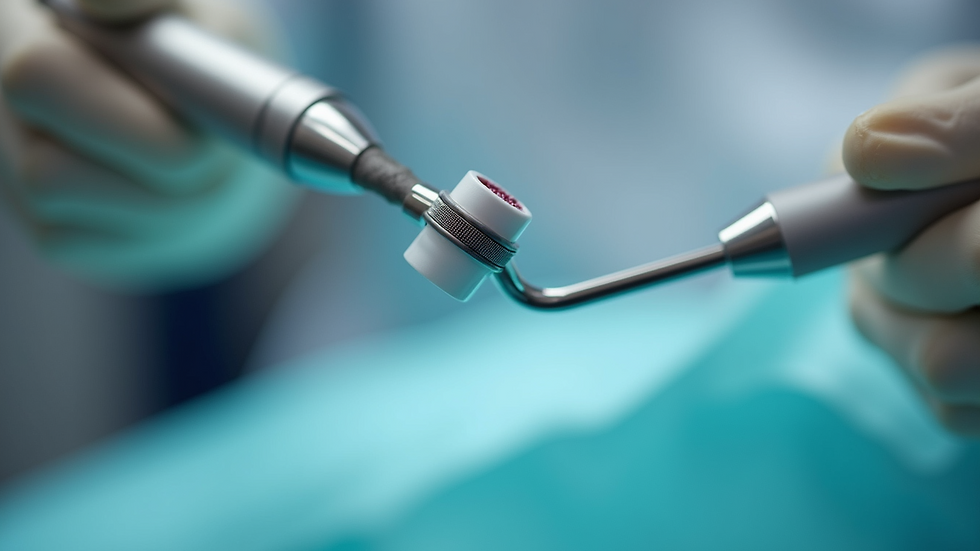How to Keep Dental Filters and Systems Running Smoothly
- Randy Coppernoll
- Mar 24, 2025
- 4 min read
Maintaining dental filters and systems is crucial for any dental practice that wants to ensure the highest level of patient care and safety. Regular upkeep helps prevent breakdowns, enhances the performance of dental equipment, and extends its lifespan. In this blog post, we will explore various strategies and tips on how to keep your dental filters and systems operating smoothly.
Importance of Dental Filters
Dental filters play a vital role in maintaining a clean and efficient operational environment in dental offices. They serve to trap contaminants and protect the dental equipment. When filters are not functioning correctly, they can lead to a range of problems, including reduced equipment efficiency and shorter equipment life.
To maintain their effectiveness, it is essential to regularly check and replace filters as per the manufacturer's guidelines. Depending on the type of filter, you might need to change them monthly, quarterly, or annually. Moreover, regularly scheduled maintenance should include adjusting components that may not require replacement but could benefit from routine care.

Keeping Your Dental Filters Clean
One of the best practices for sustaining the life and performance of your filters is to replace by manufacturers guideline as dust and debris can accumulate quickly, especially in outdoor utility rooms. Therefore, implementing cleaning protocols can significantly enhance filter efficiency.
Use Appropriate Cleaning Products: Utilize manufacturer-approved maintenance to avoid maintain efficiency.
Regular Inspection: Conduct routine inspections to identify unusual noises, or performance.
Documentation: Maintain a preventative maintenance schedule and record . This documentation can be helpful .

Training staff on cleaning protocols is also vital. Having a designated team member responsible for filter maintenance ensures consistency.
How do you maintain dental instruments?
Maintaining dental instruments is as critical as maintaining the filters themselves. Dental instruments can easily become damaged if not handled correctly, which could pose risks to patient safety.
Key Steps for Maintenance:
Sterilization: All instruments must go through a sterilization process after every use. Autoclaves are commonly used, but make sure they are calibrated properly for maximum effectiveness.
Inspection for Damage: Before each use, inspect instruments for signs of damage, wear, or rust. Even small imperfections can affect the performance and safety of tools.
Proper Storage: After cleaning and sterilization, store instruments in a clean, dry place where they remain protected from contamination.
Regular Training: Ensure that all staff regularly participate in training sessions focusing on instrument care and maintenance.
Involving your entire team in these procedures fosters a culture of responsibility towards maintaining equipment. This collective effort contributes to more efficient operations and enhanced patient safety.
Recognizing Signs of Filter and System Issues
Regular monitoring is crucial in identifying issues before they become critical problems. Being aware of the common signs that indicate a filter or system problem can save time and resources.
Some common signs include:
Reduced Suction Power: If you notice a decrease in suction power, it could indicate that the filters are clogged.
Unusual Noises: Strange sounds from equipment often signal that something needs to be checked.
Increased Downtime: Frequent equipment malfunctions can point to underlying issues with the filtration system.
Tips for Diagnosis:
Listen for Changes: Train staff to recognize unusual sounds that may indicate mechanical failure.
Regular Performance Reviews: Conduct consistent performance assessments to gauge how well systems are functioning.
Taking immediate action upon recognizing these signs can prevent costly repairs and ensure the smooth operation of your dental practice.

Implementing a Maintenance Schedule
A structured maintenance schedule is essential for any dental practice. By laying out clear timelines for regular checks and cleanings, you can preemptively address potential issues.
Daily Checks: Designate tasks for daily inspections of filters and instruments to ensure everything is in good working condition.
Weekly Maintenance: Schedule comprehensive cleaning sessions for both dental filters and instruments to prevent any buildup.
Monthly Reviews: Include a more detailed assessment each month where you check and document all equipment status.
Annual Audit: Conduct an annual audit of all dental systems and filters to identify any long-term wear and tear that needs addressing.
Such systematic maintenance, including links to specialized information on dental equipment maintenance, can significantly improve the reliability and efficiency of equipment.
Creating a Culture of Maintenance
Fostering an environment that prioritizes equipment maintenance starts at the top. Leadership should always emphasize the importance of these tasks to the staff.
Training and Empowerment: Empower employees by providing them with the necessary training to undertake maintenance tasks confidently.
Open Communication: Encourage team members to report any issues they encounter without hesitation.
Celebrate Success: Acknowledge when maintenance tasks are completed effectively. This creates motivation and a sense of shared responsibility.
By shaping an organizational culture focused on maintenance, dental practices can achieve greater efficiency and reliability in their operations.
Final Thoughts on Maintenance Practices
In conclusion, maintaining dental filters and systems is essential for ensuring a safe and efficient dental practice. By implementing regular cleaning and maintenance schedules, training staff thoroughly, and recognizing early signs of trouble, you can keep your systems running smoothly. In the end, a proactive approach to maintenance benefits not only your equipment but also enhances the level of care that you can provide to patients.
A commitment to these practices instills confidence in patients while preserving the integrity of your equipment. Focusing on reliable systems supports your practice's growth and longevity in the competitive healthcare landscape.



Comments